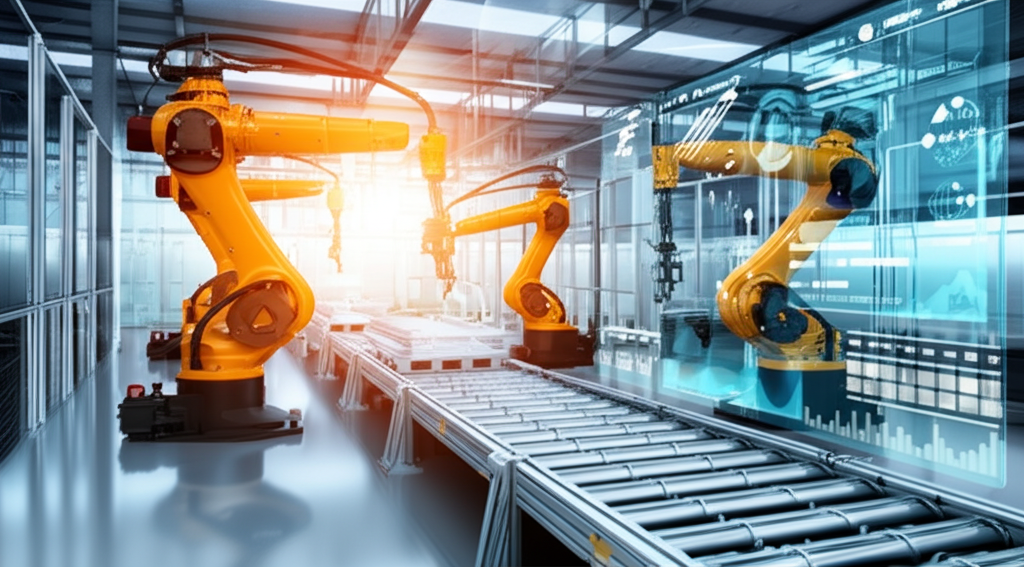The Future of AI in Manufacturing
Dr. Maria Rodriguez
AI Specialist

Artificial Intelligence (AI) is transforming the manufacturing sector at an unprecedented pace. From predictive maintenance to quality control and process optimization, AI technologies are helping manufacturers reduce costs, improve efficiency, and enhance product quality.
Predictive Maintenance
One of the most significant applications of AI in manufacturing is predictive maintenance. By analyzing data from sensors and equipment, AI algorithms can predict when machines are likely to fail, allowing maintenance teams to address issues before they cause downtime.
This proactive approach to maintenance can reduce unplanned downtime by up to 50% and extend machine life by years. Companies implementing AI-driven predictive maintenance have reported maintenance cost reductions of 10-40% and increased equipment uptime by 10-20%.
Quality Control
AI-powered computer vision systems are revolutionizing quality control in manufacturing. These systems can inspect products at speeds and accuracy levels impossible for human inspectors, identifying defects that might otherwise go unnoticed.
For example, automotive manufacturers are using AI vision systems to inspect paint finishes, detect microscopic defects in components, and ensure consistent assembly quality. These systems can process thousands of items per hour with near-perfect accuracy.
Process Optimization
AI is also being used to optimize manufacturing processes. By analyzing vast amounts of production data, AI systems can identify inefficiencies and suggest improvements to increase throughput, reduce waste, and lower energy consumption.
Some manufacturers have reported productivity gains of 20-30% after implementing AI-driven process optimization. These systems continuously learn and adapt, ensuring that manufacturing processes remain optimized even as conditions change.
The Future Outlook
As AI technologies continue to advance, we can expect even more transformative applications in manufacturing. The integration of AI with robotics, IoT, and digital twins will create smart factories that are more efficient, flexible, and responsive than ever before.
Manufacturers that embrace these technologies will gain a significant competitive advantage, while those that lag behind may struggle to compete in an increasingly technology-driven industry.